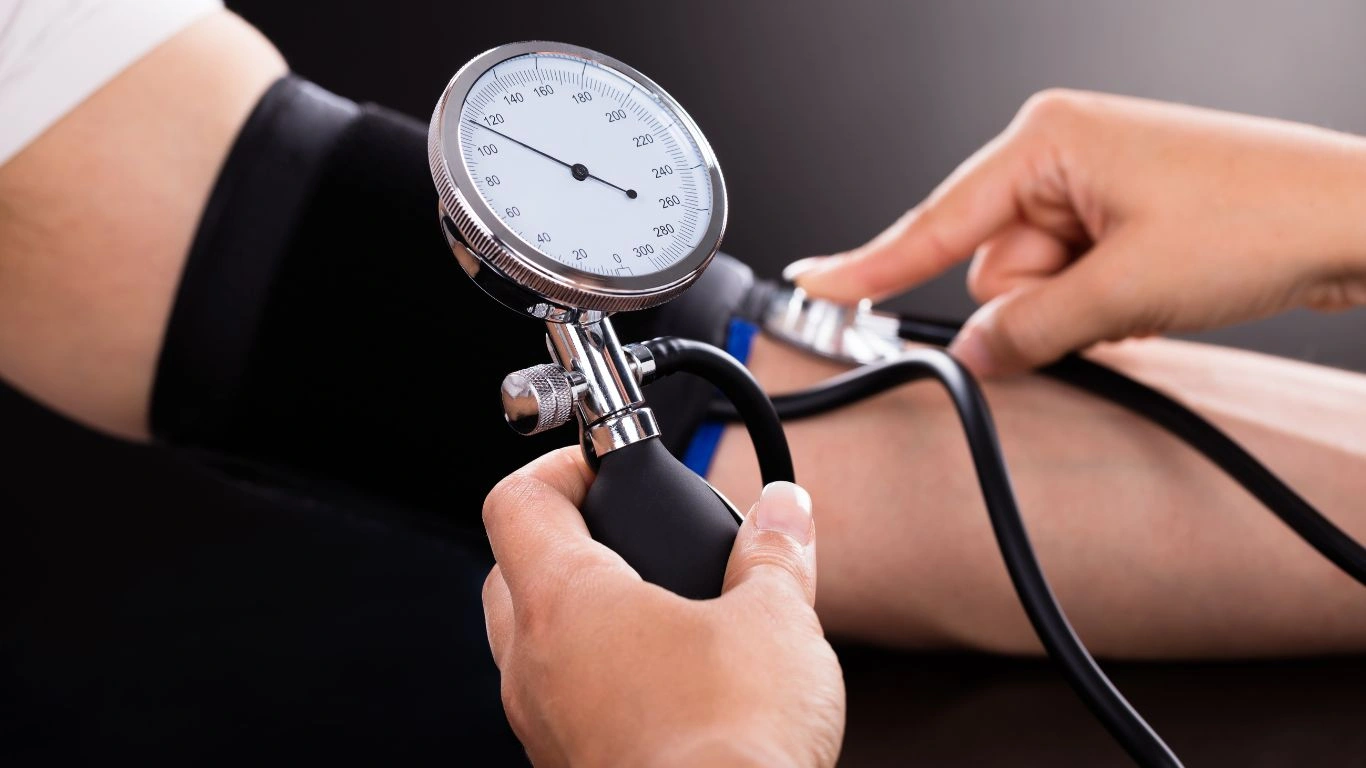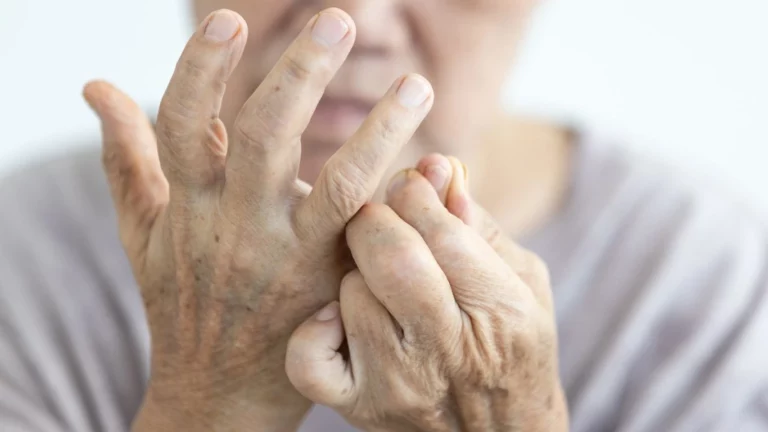Can Stress Cause Chronic High Blood Pressure? The Shocking Truth
Can stress cause chronic high blood pressure? If you’ve ever felt your heart pounding after a stressful meeting or a sudden crisis, you’ve probably wondered about this yourself. As someone who has spent years specializing in hypertension, I’ve had countless patients ask me, “Is my stress making my blood pressure worse?” The short answer? It absolutely can—but there’s more to the story than just feeling overwhelmed.
The Stress-Blood Pressure Connection

Let’s break it down. When you’re under stress, your body goes into fight-or-flight mode. This triggers a surge of stress hormones like cortisol and adrenaline, which cause your heart to beat faster and your blood vessels to constrict. This temporary spike in blood pressure isn’t necessarily harmful. In fact, it’s a normal response to danger.
But what happens when stress isn’t just an occasional thing? What if your life is one big ball of deadlines, family pressures, and financial worries? That’s where the trouble starts.
Acute vs. Chronic Stress: The Key Difference
Not all stress is created equal. In my practice, I’ve seen patients who worry about a big presentation experience temporary blood pressure spikes—but once the meeting is over, their readings return to normal. That’s called acute stress. It’s short-lived.
Then there’s chronic stress. This is the kind that sticks around—relentless job stress, caregiving burdens, or ongoing financial struggles. Over time, this kind of stress can contribute to chronic high blood pressure (hypertension) by:
- Keeping blood vessels in a constant state of constriction
- Disrupting the balance of hormones that regulate blood pressure
- Encouraging unhealthy coping mechanisms (hello, stress eating and binge-watching Netflix instead of exercising!)
How Stress Indirectly Worsens Hypertension

One of the trickiest things about stress and blood pressure is that the connection isn’t always direct. In fact, most doctors—including myself—believe that stress contributes to high blood pressure through behavioral changes rather than a direct physiological effect.
The Unhealthy Habits That Follow Stress
Let’s be real. When people are stressed, they don’t always make the best lifestyle choices. I’ve had plenty of patients tell me:
- “I eat junk food when I’m stressed.” (Ultra-processed foods high in salt = blood pressure nightmare.)
- “I don’t have time to exercise.” (Sedentary lifestyle = higher risk of hypertension.)
- “I drink more coffee or alcohol to cope.” (Both can increase blood pressure over time.)
See the pattern? It’s not just stress itself—it’s what stress makes us do that really pushes our blood pressure into dangerous territory.
Can Stress Alone Cause Chronic High Blood Pressure?

This is the million-dollar question. While stress alone may not be the sole culprit behind chronic hypertension, it certainly plays a big role in making it worse. Here’s what we know from research:
- Chronic stress increases inflammation, which can damage blood vessels.
- It contributes to hormonal imbalances that elevate blood pressure.
- It leads to poor lifestyle choices that are proven hypertension risk factors.
So, can stress cause chronic high blood pressure? Not directly, but it can set off a chain reaction that makes it highly likely. That’s why managing stress is just as important as eating well and exercising when it comes to keeping your numbers in check.
Signs Your Stress Levels Are Affecting Your Blood Pressure

Here’s something I’ve noticed in my years of treating hypertension: people rarely connect their stress levels with their blood pressure until it’s too late. It’s easy to brush off stress as “just part of life,” but if you’ve been feeling more irritable, exhausted, or dealing with mysterious headaches, your body might be waving a red flag.
Warning Signs to Watch For
If stress is pushing your blood pressure higher, you might experience:
- Frequent headaches: Especially those dull, throbbing ones at the base of your skull.
- Unexplained fatigue: Feeling drained even after a full night’s sleep? Chronic stress can do that.
- Heart palpitations: That fluttery or racing heartbeat isn’t just anxiety—it’s your cardiovascular system reacting to stress hormones.
- Increased blood pressure readings: If your numbers are creeping up despite a decent diet and regular exercise, stress might be the hidden culprit.
One of my patients once told me, “I thought I was just anxious, but my blood pressure was sky-high every time I checked it.” If this sounds familiar, it’s time to take stress management seriously.
How to Manage Stress to Keep Blood Pressure in Check

Let’s talk solutions. You don’t have to quit your job, move to a deserted island, or take up meditation for hours a day (unless you want to, of course). Managing stress effectively comes down to simple, daily habits that can make a massive difference.
1. Master the Art of Deep Breathing
It sounds too easy, right? But trust me, breathing exercises are one of the fastest ways to lower your stress levels. When my patients try the 4-7-8 breathing technique—inhaling for four seconds, holding for seven, and exhaling for eight—they’re often shocked at how quickly they feel calmer.
2. Get Moving (Even If It’s Just a Walk)
Exercise is hands-down one of the best ways to combat stress and hypertension. But let’s be real—not everyone has time for an hour at the gym. The good news? A 30-minute brisk walk can lower stress hormones and improve heart health. Even dancing around your living room counts!
3. Prioritize Quality Sleep
Sleep and stress have a toxic relationship. The more stressed you are, the worse you sleep, and the worse you sleep, the more stressed you feel—it’s a vicious cycle. Aim for 7-9 hours of solid sleep by:
- Limiting screen time before bed
- Keeping your bedroom cool and dark
- Sticking to a consistent sleep schedule
One of my patients started a simple bedtime routine—no caffeine after 2 PM, reading a book instead of scrolling on her phone, and a little lavender oil on her pillow. Her sleep improved, and guess what? So did her blood pressure.
4. Watch Your Caffeine and Alcohol Intake
I get it—coffee in the morning, wine in the evening. It’s how many people manage stress. But here’s the thing: too much caffeine and alcohol can spike blood pressure and make stress worse. Try swapping your afternoon coffee for herbal tea or cutting back on alcohol a few nights a week.
5. Make Time for Things That Bring You Joy
Life is stressful, but it shouldn’t be all work and no play. Whether it’s painting, gardening, listening to music, or hanging out with friends, finding moments of joy can lower your stress and, in turn, keep your blood pressure in check.
When to Seek Professional Help
Sometimes, stress and high blood pressure become too much to handle alone. If your numbers are consistently high, or if stress is affecting your daily life, don’t hesitate to talk to a doctor. There’s no shame in needing support—whether it’s through therapy, medication, or a personalized lifestyle plan.
Remember, managing stress isn’t about eliminating it completely—it’s about keeping it from taking over your health. Small changes can add up to big results, and your heart will thank you for it.
Case Studies & Real-Life Examples

Let’s step away from theories for a moment and look at real people who’ve struggled with stress-related high blood pressure—and how they turned things around.
Case Study #1: The Overworked Executive
Meet Daniel, a 45-year-old corporate executive who came to me frustrated with his uncontrollable blood pressure. He wasn’t overweight, exercised occasionally, and ate a fairly balanced diet. So why was his BP consistently hovering around 150/95?
After digging deeper, we found the root cause: chronic work stress. Daniel regularly pulled 60-hour workweeks, skipped meals, and relied on caffeine to push through exhaustion. His stress hormones were in overdrive.
With small, sustainable changes—like scheduling short breaks, reducing caffeine, and incorporating breathing exercises—his blood pressure gradually dropped to 125/80 within a few months.
Case Study #2: The Stressed-Out Caregiver
Then there’s Maria, a 52-year-old woman caring for her aging mother while juggling a full-time job. Between hospital visits, late-night worries, and skipped self-care, her blood pressure hit dangerous levels (160/100!).
Maria’s biggest struggle? She never prioritized herself. We started with tiny shifts: a 10-minute morning walk, delegating small caregiving tasks, and a nightly meditation practice. The result? Lower stress, better sleep, and a BP reading that dropped to 130/85.
The takeaway? Stress management isn’t about making drastic changes overnight—it’s about finding what works for you and sticking with it.
Key Takeaways: What You Need to Remember
If there’s one thing I want you to walk away with, it’s this: stress can contribute to high blood pressure, but you have the power to manage it. Here are the biggest lessons from this deep dive:
- Acute stress causes temporary BP spikes. But chronic stress? That’s where long-term problems begin.
- Unhealthy coping mechanisms (poor diet, lack of exercise, too much caffeine/alcohol) make things worse.
- Managing stress is just as important as medication and diet. Deep breathing, exercise, and good sleep matter.
- Small, daily changes add up. You don’t need a drastic life overhaul—just a few intentional shifts in your routine.
FAQs
1. Can stress alone cause chronic high blood pressure?
Not directly, but it can contribute significantly by triggering hormonal imbalances, blood vessel constriction, and unhealthy lifestyle choices.
2. How do I know if stress is affecting my blood pressure?
Frequent headaches, heart palpitations, fatigue, and high BP readings despite a healthy lifestyle could be red flags.
A combination of lifestyle changes: breathing exercises, regular movement, sleep hygiene, and mindful stress management.
4. Does meditation really help?
Absolutely. Even just 5-10 minutes of deep breathing or guided meditation can lower stress hormones and improve BP over time.
5. Should I take medication if my blood pressure is high due to stress?
It depends. Some people may need short-term medication, while others can manage it naturally. Always consult a doctor for personalized advice.
Bonus: Additional Resources & DIY Tips
Want to take control of stress and blood pressure? Here are some extra resources:
- Apps to try: Calm, Headspace, Insight Timer (for guided meditation and breathing exercises)
- Best books on stress management: “The Relaxation Response” by Dr. Herbert Benson, “Why Zebras Don’t Get Ulcers” by Dr. Robert Sapolsky
- Simple DIY stress relief techniques:
- Listen to calming music (classical, nature sounds, or jazz)
- Journal your thoughts for 5 minutes daily
- Try progressive muscle relaxation before bed
Appendix: References, Disclaimer & Call to Action
References:
- American Heart Association – Hypertension & Stress
- National Heart, Lung, and Blood Institute – Managing High Blood Pressure
- Mayo Clinic – Stress and Blood Pressure
Disclaimer: This article is for informational purposes only and does not replace professional medical advice. Always consult with a healthcare provider for personalized recommendations.
Take Charge of Your Blood Pressure Today!
If you’re struggling with stress-related hypertension, don’t wait until it becomes a bigger problem. Start small, be consistent, and seek help when needed. Your heart—and future self—will thank you!

Dr. Gwenna Aazee is a board-certified Internal Medicine Physician with a special focus on hypertension management, chronic disease prevention, and patient education. With years of experience in both clinical practice and medical writing, she’s passionate about turning evidence-based medicine into accessible, actionable advice. Through her work at Healthusias.com, Dr. Aazee empowers readers to take charge of their health with confidence and clarity. Off the clock, she enjoys deep dives into nutrition research, long walks with her rescue pup, and simplifying medical jargon one article at a time.







